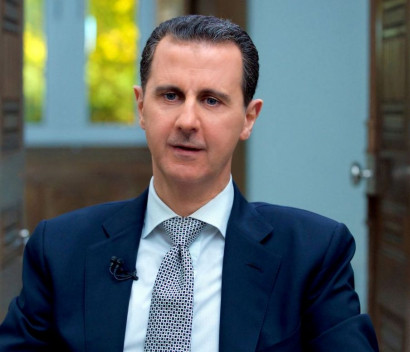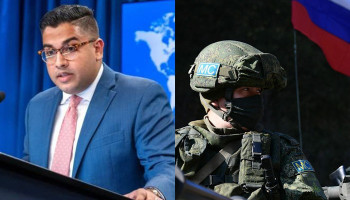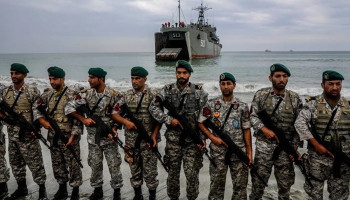Assad regime's 'starve or surrender' strategy is a war crime, says Amnesty
 Forces loyal to Bashar al-Assad in Syria have committed crimes against humanity through their “starve or surrender” strategy and sieges that have devastated areas controlled by the opposition, a report by human rights watchdog Amnesty International has concluded. The report, to be released on Monday, examines four “reconciliation” deals between the Assad regime and the opposition in Aleppo, Homs and Darayya as well as an agreement that included four besieged towns, two by the government and two by the rebels, and which led to the displacement of tens of thousands of civilians after years-long sieges and indiscriminate bombardment. While the report concludes that all sides in the conflict had violated international law, it says the regime’s strategy of systematically preventing crucial food and medicine supplies from entering civilian areas while mounting bombing campaigns amount to war crimes and crimes against humanity. “In essence, the deals have enabled the government to reclaim control of territory by first starving and then removing inhabitants who rejected its rule,” the report says. More than 500,000 people are still believed to be trapped in besieged areas in Syria. Their plight was brought into sharp focus last month when images of a starving baby in the opposition-controlled eastern Ghouta near the capital, Damascus, surfaced. Her mother was unable to feed her because the lack of food meant she was too weak to breastfeed. The baby died. A leading United Nations official said on Thursday that eastern Ghouta’s 400,000 residents were on the verge of a “complete catastrophe” resulting from a block on aid deliveries. “I feel as if we are now returning to some of the bleakest days of this conflict again,” said Jan Egeland, a senior adviser to the UN’s Syria envoy. The Amnesty report examined the sieges and evacuation deals in the city of Darayya near Damascus, in Aleppo, the al-Waer district of Homs, and the towns of Madaya, Zabadani, Kefraya and Foua, all of which were concluded between August 2016 and March 2017. It conducted interviews with 134 people including displaced residents, UN officials and humanitarian workers.The report found that the government restricted indispensable humanitarian and medical aid while simultaneously carrying out attacks on civilians, hospitals, markets and homes, violations that amount to war crimes. It also said the sieges, unlawful killings and forced displacement constituted a “systematic as well as widespread” attack on the civilian population, a crime against humanity. It accused rebels who besieged Foua and Kefraya of blocking aid and indiscriminate shelling of civilian areas, attacks that also amounted to war crimes. The Syrian government has described many of the controversial agreements to evacuate civilians in besieged rebel-held areas as reconciliation deals. While humanitarian officials acknowledge that the evacuations do save lives that are at risk if the fighting continues, few believe that those leaving have any choice, often facing the risk of extrajudicial punishment, drafting into the military, or other retribution for having remained in opposition-held areas. In many cases, civilians living under siege have reported that they have resorted to eating grass or boiled water with spices while awaiting aid deliveries from UN warehouses just a few miles away that are prevented by government blockades from reaching people in need. One civilian quoted in the report described life in besieged Darayya as being in “Stone Age-like conditions.” Satellite imagery has confirmed that forces loyal to Assad had burned surrounding agricultural fields. Separately, the ongoing siege in eastern Ghouta, which has lasted several years but was tightened after a government offensive in April, has left civilians with little food or medical supplies. A kilogram of rice costs approximately US$12 while the price of sugar is the equivalent of about $27, mostly due to the siege but also because of predatory pricing by local merchants, placing basic staples out of the reach of starving citizens. Residents say baby milk and even painkillers are unavailable and few have electricity because it costs too much to buy diesel oil. Advertisement Raed Srewel, an activist in the city of Douma, said expectant mothers were underfed, leading to a greater prevalence of heart conditions in infants as well as infections such as meningitis. Eastern Ghouta is one of several “de-escalation” zones created under a deal brokered by Russia and Turkey to reduce the violence in Syria. But the government has continued to impose a siege on the area and there have been airstrikes in recent days. “There is great hunger among the people,” Srewel said. “It’s a common sight now to see women standing around garbage heaps with the hope that they will find something there to eat. Children go to school in the morning with nothing in their mouths and can barely concentrate in classes. The basic pillars of life are absent here.” |



















